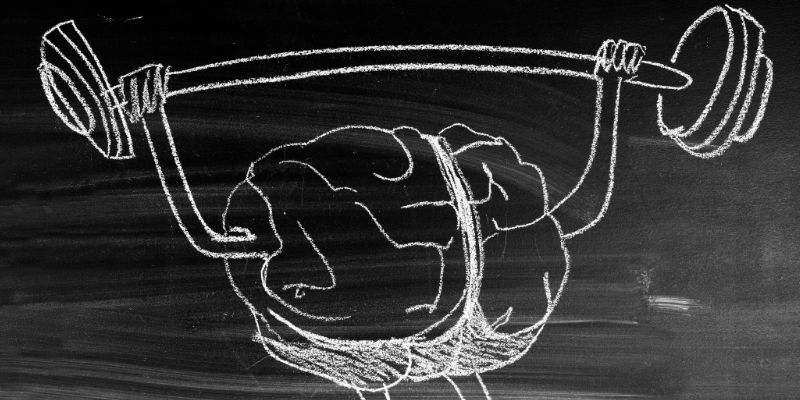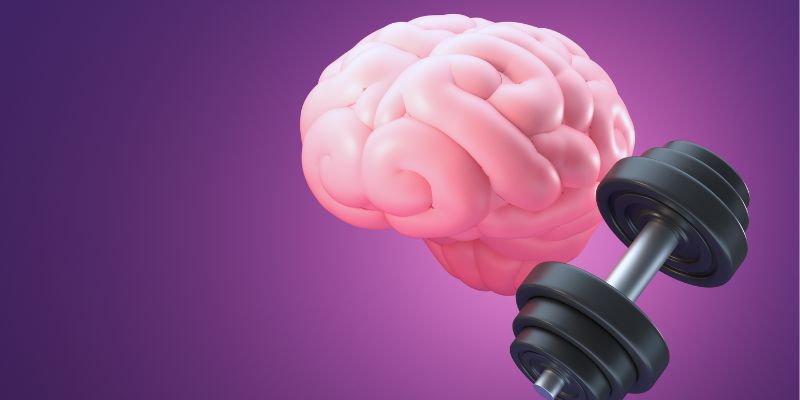Advertisement
Most of us consider exercise as a means of maintaining physical fitness. Have you realized that exercise is also absolutely vital for your brain? Like your body, your brain needs consistent maintenance to operate as it should. Exercise builds your mind as much as it increases your physical power. Physical activity is among the best methods to keep your brain healthy, whether increasing memory or lowering stress.
From a basic stroll to a vigorous workout, every bit of movement counts. This guide will explore how regular exercise can boost mood, increase brain capacity, and potentially aid in stopping memory decline. Lacing up your sneakers and starting to move will help you quickly improve your mental health. Learn the strong link between exercise and brain function and how it could change your life.

These are the advantages of exercise for enhancing brain function.
Exercise speeds blood flow to the brain. More nutrients and oxygen reach brain cells, supporting their improved function. Furthermore, encouraging the synthesis of compounds supporting brain function is physical exercise. It raises, for instance, brain-derived neurotrophic factor (BDNF) levels, a protein that promotes the creation of fresh brain cells. Learning and memory need BDNF.
Regular exercise has been linked in studies to improved performance in memory and problem-solving activities. Furthermore, encouraging the development of new blood vessels in the brain is exercise. It increases general brain capacity and speeds up brain recovery from damage. The area of the brain in charge of memory, the hippocampal, expands with physical exercise.
One very effective strategy for lowering stress and anxiety is physical activity. When you work out, your body releases endorphinschemicals often referred to as "feel-good" hormoneswhich aid in lowering pain and enhancing mood. After a workout, endorphins might help you feel calmer and more content. Apart from endorphins, exercise reduces stress hormone levels, including cortisol.
High cortisol levels can damage the brain, which causes trouble focusing and memory loss. Regular exercise helps control these stress chemicals, enabling the brain to operate more normally. Many find that physical exercise also provides a respite from their concerns. It enables individuals to concentrate on the here and now, helping to lower anxiety.
Many times, exercise is advised for the betterment of mental health. It can help generally raise mood and help to lessen depressive symptoms. Physical exercise raises the synthesis of serotonin, a neurotransmitter controlling emotions and mood. Depression is connected to low levels of serotonin. Hence, exercise can help you naturally become more cheerful.
Better sleep is another benefit of physical activity, vital for brain function. Sleep lets the brain organize memories and heal itself. Regular exercise helps you fall asleep and stay asleep, enhancing your mood and cognitive ability. Exercise can also boost your confidence. Whether major or minor, reaching fitness targets can make one feel successful.
Our minds inevitably become less sharp as we age. Although aging brings normal cognitive loss, exercise can help delay this process. Studies reveal that consistent physical activity lowers the risk of disorders like dementia and Alzheimer's disease. Exercise shields the brain by lowering inflammation and oxidative stresstwo things that could harm brain cells.
Physical activity also helps the brain eliminate waste products that can build up and cause cognitive deterioration. Exercise helps older adults with memory, attentiveness, and decision-making ability. Exercising is never too late since even little physical activity can help prevent memory loss and other cognitive problems.

Exercise improves your brain's capacity rather than only protecting it. It is well-recognized that physical activity increases creativity and helps one learn. Your brain gets more flexible as you exercise. Neuroplasticity, as this is known, lets the brain create new connections between neurons and pick up new abilities. Many people discover that their best ideas strike when they are working out.
That could be because physical exercise helps the brain enter a calm yet concentrated state, improving creative ability. Research indicates that those who participate in physical exercise are more likely to be creative problem solvers. Moreover, physical exercise sharpens focus and attentiveness. You could find it simpler to focus on tasks, pick up fresh knowledge, and remember what you learn after working out.
Exercise is critical for promoting neuroplasticitythe brain's capacity for adaptation and change. Physical activity causes the brain to create fresh neural connections, improving its learning and injury recovery ability. This mechanism also depends on maintaining cognitive flexibility and resilience over a lifetime.
In particular, aerobic activities have been found to boost the synthesis of brain-derived neurotrophic factor, which helps neurons develop and survive. Regular exercise can also improve current connections, increasing your brain's adaptability to fresh challenges and experiences and enabling you to remain sharp as you age.
Physical activity greatly improves memory and learning capacity. Exercise generates blood flow to the brain, delivering nutrients and oxygen required for optimal cognitive performance. This better circulation helps you remember and learn. Furthermore, exercise promotes the release of neurotransmitters like serotonin and dopamine, which are vital for memory creation and mood control.
Studies reveal that consistent aerobic exercise enhances spatial navigation ability and verbal memory. Including physical exercise in one's schedule strengthens the foundation for better learning results and more keen thinking.
In conclusion, exercise is a great friend for brain function. It lowers stress and improves mood in addition to sharpening cognitive ability. Frequent physical exercise protects against cognitive loss, increases memory, and supports neuroplasticity. Maintaining mental clarity and resilience depends on us remaining active as we age. Every movement counts, whether your exercise is walking, running, or another kind. Giving physical exercise a priority invests in your brain's future and general well-being. Accept the transforming power of exercise now to savor a clearer, healthier mind for many years.
Advertisement

By Gabrielle Bennett /Oct 13, 2024

By Isabella Moss/Dec 26, 2024

By Madison Evans/Oct 18, 2024

By Juliana Daniel/Jan 01, 2025

By Vicky Louisa/Dec 15, 2024

By Madison Evans/Oct 12, 2024

By Mason Garvey/Jan 01, 2025

By Gabrielle Bennett /Oct 10, 2024

By Martina Wlison/Dec 26, 2024

By Christin Shatzman/Oct 14, 2024

By Sean William/Jan 01, 2025

By Jennifer Redmond/Oct 10, 2024